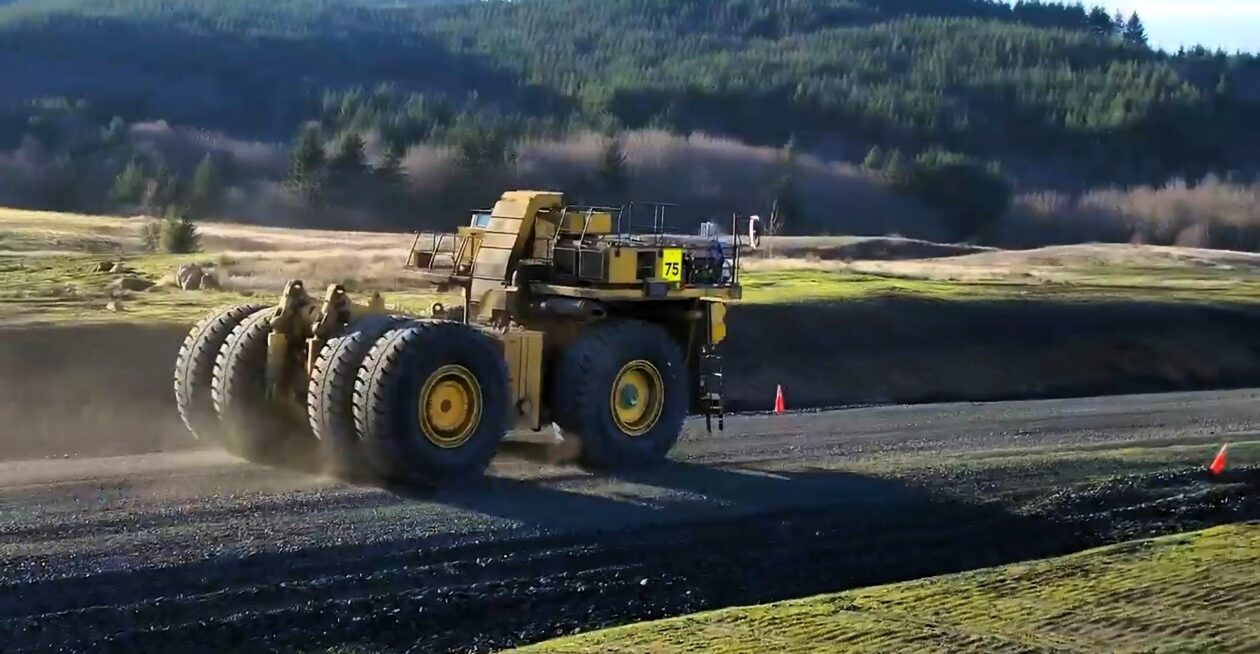
Seattle-based First Mode says it’s cutting back on its workforce as it adjusts to the market demand for heavy trucks that rely less on fossil fuels.
The workforce in the U.S., which currently amounts to about 240 people, is being immediately reduced by about 20%, First Mode CEO Julian Soles said in an email sent to employees today. Most of those employees are in Washington state — for example, at First Mode’s Seattle HQ and at its proving grounds in Centralia, Wash.
About 125 additional employees work in non-U.S. offices. Soles said operations in Australia, Britain and South Africa “may also possibly experience redundancies,” while operations in Chile are “not currently impacted.”
Despite the cutbacks, First Mode is continuing with plans to retrofit mining trucks to reduce their carbon footprint and address the climate challenge.
“This is the year that we deliver commercial products to our customer sites. It is also when we finalise our transformation from an engineering services firm to a global decarbonisation product company,” Soles wrote, using British spellings.
Next month, First Mode will officially open a 40,000-square-foot factory in Seattle’s SoDo district to manufacture power systems and the associated ground infrastructure for its “Path to Zero” product line.
When the Anglo American mining conglomerate acquired a majority share of First Mode a year ago, the business plan focused on converting heavy trucks to use First Mode’s zero-emission, hydrogen fuel-cell powertrain — starting with Anglo American’s fleet.
Since then, however, First Mode has determined that potential customers prefer a step-by-step approach to decarbonization. As a result, the company is working on a broader product line that also includes a lower-cost diesel-battery system — more like a Toyota Prius hybrid than a hydrogen-fueled Toyota Mirai. The Hybrid EV Retrofit, or HEV, is currently being tested at First Mode’s Centralia proving grounds, with commercial deployment due by 2025.
First Mode says the diesel-electric hybrid reduces fuel usage and carbon emissions by up to 25%, thanks to its regenerative braking system. The retrofit package is designed so that the diesel-electric version can be reconfigured later as a fuel-cell or battery-electric truck, putting customers further along the path to zero carbon emissions.
“With strong customer interest, HEV has a clear commercial path forward,” Soles wrote in his memo. “By comparison, the nascent global green hydrogen economy is not yet where our customers need it to be for us to justify most of our FCEV [fuel-cell electric vehicle] spend and scope in 2024.”
The wider short-term outlook for the hydrogen economy isn’t quite as sunny as it was a year ago. Last September, the International Energy Agency reported that cost concerns were “putting projects at risk and reducing the impact of government support for employment.”
The long-term outlook still holds promise, however: In October, the U.S. Department of Energy announced that the Pacific Northwest will be home to one of seven U.S. hydrogen hubs, with up to $1 billion available to fund hydrogen-related projects. First Mode is among the ventures proposing projects.
Soles said First Mode will have a key role to play in spurring the market for hydrogen-powered heavy vehicles “by solving the challenge of fuel cell power density, plus liquid hydrogen storage and refuelling as the global ecosystem of green hydrogen continues to develop.”
In addition to reflecting First Mode’s revised strategy, the cutbacks address areas where last year’s business combination with Anglo American resulted in redundancies.
When the $1.5 billion combination deal was closed, the plan called for First Mode to shift its corporate headquarters to London, where Anglo American is based. But since then, First Mode has actually followed more of a dual-HQ model. Soles, who came to the company from Anglo American, is said to split his time between London and Seattle.
First Mode started out in 2018 as an engineering venture formed by veterans of a Seattle-area asteroid mining venture called Planetary Resources. The company initially provided expertise for space projects such as NASA’s Perseverance rover mission and the Psyche mission to a metal-rich asteroid. In 2019, First Mode began building an increasingly close relationship with Anglo American and eventually shifted its focus exclusively to clean tech.

